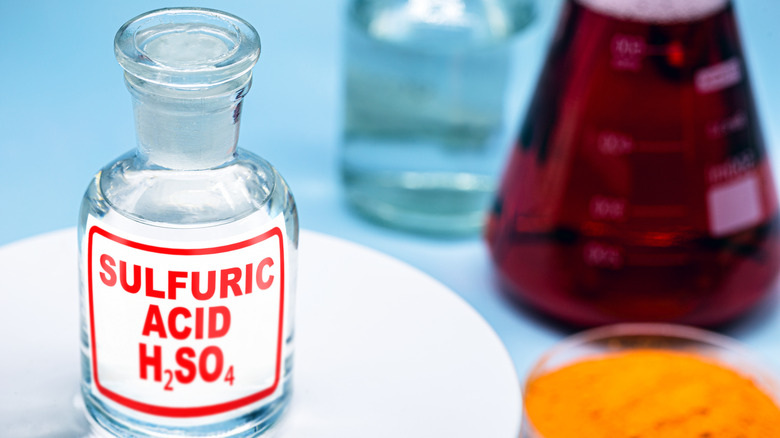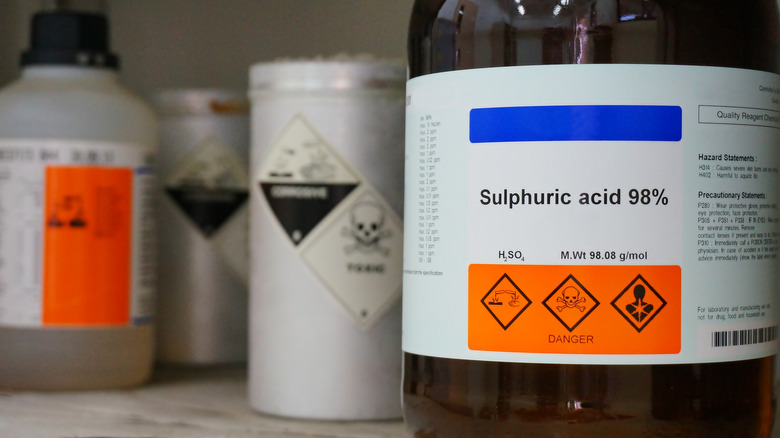Here's What Really Happens To Your Body When You're Exposed To Acid
Pineapples, interestingly, are one of the very few foods that will try to eat you right back. According to Healthline, the unique-looking fruit is very acidic, and high in bromelain. This enzyme, per The University of Melbourne, isn't found anywhere else in nature. It breaks down proteins very effectively, but the acid in the human stomach ensures that you eat it before it eats you.
Healthline also reports that stomach acid consists of sodium chloride and other components, along with a very small quantity of hydrochloric acid. The concoction is surprisingly strong, but the stomach secretes a thick mucus lining to prevent any damage it could cause to the body.
The rest of our bodies, consisting of layers of delicate flesh, organs, and bones, is susceptible to tremendous damage from acid. Here are some of the shocking things that can happen when the body is exposed to acid.
The aforementioned hydrochloric acid helps serve the vital function of breaking down food for digestion. Per Filkaline, though, this substance is incredibly corrosive and very dangerous. It's capable of melting through certain metals, and exposure to it can cause vision loss, awful chemical burns, and far worse, depending on the concentration and the area of the body affected. High enough concentrations of this acid, Filkaline goes on, can dissolve a human body entirely (bones included), in a grisly process that can take a full 24 hours.
Coagulative necrosis, acidosis, and other terrible dangers
Sulfuric acid is another of the best-known and most potent acids. The Journal of Clinical Toxicology published a paper entitled "How Can Humans Be Damaged By Sulfuric Acid?," (Se Kwang Oh et al., 2017) which explained that accidents involving this deadly substance are common, owing to the fact that it is an important component in dyes, fertilizer and other industry mainstays. If it comes in direct contact with the flesh, it can cause terrible chemical burns (even tiny amounts of it react with the water in the flesh, producing heat) and coagulative necrosis (the death of body cells caused by limited blood supply), as capillaries are damaged.
Certain acids are vital components of our bodies, per SFGate, such as amino acids and fatty acids. Too much of these can still be harmful.
Medline Plus says that the state of having too much of these acids in the body is known as acidosis. This condition can be caused by illnesses of the kidneys or lungs, which usually regulate the PH levels of the body. Depending on the type of acidosis experienced, it can cause symptoms that vary from loss of breath to disorientation and even death.

